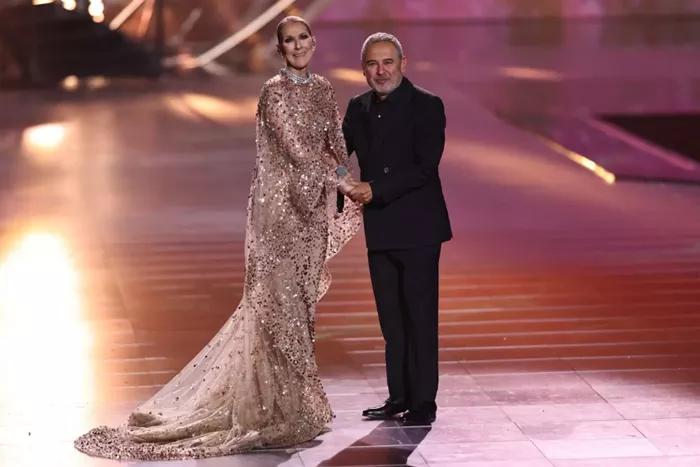Last week, world-renowned Lebanese designer Elie Saab marked 45 years in the fashion industry with a spectacular event titled *The 1001 Seasons of Elie Saab* in Saudi Arabia. The anniversary celebration took place in Riyadh, Saudi Arabia’s capital, and featured 300 of Saab’s iconic designs, star-studded performances from Jennifer Lopez, Celine Dion, Amr Diab, and Nancy Ajram, and an audience of over 1,000 guests.
However, the event sparked mixed reactions online. While some praised the show as a celebration of Lebanese artistry, others criticized it as “insensitive” given the ongoing conflicts in Lebanon and Gaza.
The fashion show was part of Riyadh Season, an annual cultural and entertainment festival launched in 2019 as part of Saudi Arabia’s Vision 2030 initiative, aimed at boosting tourism and promoting the country’s cultural scene.
Amid the lavish celebration, many online users expressed concern about the timing of the event, pointing to the violence and humanitarian crisis unfolding in the region. One commenter criticized the Saudi government for continuing to host “entertainment parties” while civilians in Gaza and southern Lebanon suffer from violence and hunger.
“As the Israeli occupation army violates South Lebanon and commits genocide in Gaza, Saudi Arabia continues with its dancing and singing in Riyadh Season,” one user remarked. Another added, “While Arab children are being slaughtered in Gaza and Lebanon, Saudi throws a lavish star-studded party, ironically celebrating a Lebanese designer.”
The ongoing conflict has resulted in significant casualties, with more than 43,900 Palestinians killed and over 103,000 injured, according to Gaza’s Health Ministry. In Lebanon, Israeli attacks have left at least 3,400 people dead and 14,600 wounded, as reported by the Lebanese Health Ministry.
One critic expressed frustration with the perceived disconnect, saying, “How can we see the blood of Gaza being shed every day while the kingdom celebrates with no care for the tragedy? Normalizing relations with the occupying entity and ignoring the suffering raises serious questions.”
Despite the backlash, others defended the event as an important cultural statement. Some pointed out that Saab’s work symbolizes Lebanon’s rich heritage, which is often overshadowed by the country’s political instability and conflict.
“What Elie Saab is doing in Riyadh represents the true, beautiful image of Lebanon that we should share with the world,” said one supporter on social media. “Lebanon is a country of civilization, not war, and I hope it can rebuild and return to the global stage.”
When asked about the decision to hold the event amid the ongoing war, Saab expressed deep personal pain, acknowledging the conflict’s emotional toll. “Honestly, the only pain today was holding this event when our country is in such a state,” Saab said. “But I want to say that my whole life has been like this. During my first show in 1982, Israel was also invading Lebanon.”
Saab also revealed that while he considered postponing the show, logistical challenges made it impossible. “I would have liked to delay the event, but with all our commitments, it was very difficult.”
Supporters of Saab’s decision argued that his work serves as a vital representation of Lebanon’s enduring spirit and cultural resilience. “Elie Saab is raising the name of Lebanon globally, even as our country endures destruction and death. Lebanon is a place of life, beauty, and the fragrance of flowers, not death,” one fan wrote.
Another supporter added, “Elie Saab deserves to be the ambassador of beauty.”
While the controversy surrounding the event persists, it highlights the complex intersection of culture, politics, and global events in the context of an increasingly divided region.
Related topics:
- Kylie Jenner’s Sparkle Collection Has Us Ready for Stunning Christmas Party Looks
- Kivanci Fashion Design Studio Brings Style and Flair to Evanston
- Burberry Launches “Critical” Strategy as Sales Dive

